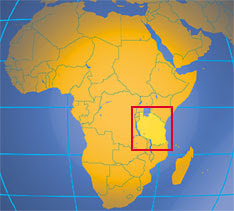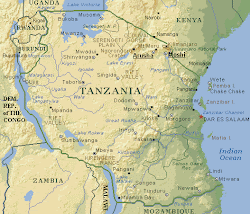This month has truly been an interesting learning experience. Just as I thought things were starting to move along, road blocks popped up everywhere and I am suddenly back to square one…
In the beginning, I felt pretty cool cruising around Arusha in my little Suzuki Escudo… I have the freedom, control over my pace of the day (somewhat) and security of having my own car. Well, buying a car in Africa has proven to be way more complicated than I imagined. Trying to find a seller that will be 100% honest with you is nearly impossible, as soon as anyone sees a “mzungu” (“affectionate” slang for white person...hmm) the price doubles! Plus you have to find a way to avoid the (8) middlemen who are all trying to make a profit off a young mzungu woman. Fortunately, I have a good friend here who I can trust completely and he helped me get the car without paying a ridiculous amount for it and acted as my translator so there was no confusion. Having the car is awesome, but I am glad that transaction is almost over…

My TAWIRI permit has been denied. I applied and PAID for this permit back in early December, so it is quite ridiculous that it has taken them this long to figure out that I am not exactly eligible for a Tawiri permit. COSTECH told me that I had to have the Tawiri in the first place, which was dead wrong. Tawiri (the Tanzanian Wildlife Research Institute) gives out permits to NGO’s and scientists that are doing formal research projects. I am here to do a project in photography on a pre-existing research project, not to start my own new one! I was confused as to why I had to have this very expensive permit, but I did as I was told. Costech (the Commission for Science & Technology) should have read my research proposal when I sent it to them IN JULY and realized that I was doing Photography then. NOW I have to apply for the Photo/Film Permit from the Ministry of Information. (who knew?!) Okay, should be easy enough, I just have to write a 1 page summary of what/who I will be documenting, etc.EXCEPT….
It looks like my original project will be changing a bit. Okay, maybe a lot. Turns out, the guy I came to work with is WAY too busy to support a foreign student living here. Making a documentary is completely new to me and I am in a totally foreign world. I was living in his house and I saw him maybe once a week, tops. How am I supposed to make a successful, in depth amazing documentary about a project who’s primary researcher is basically unavailable? Besides, he has real film crews out there making documentaries about his project already. Why should I waste my effort creating an amateur documentary for a project that already has plenty of support? I feel like my creative services can be used to benefit smaller, developing projects that could really use the help from a photographer. We’ve had our differences too, so I am happy to be changing my focus to a project that will appreciate my efforts! Everything is a learning experience, especially when it is confusing, frustrating and challenging, which this month has surely been.
But it hasn’t been all bad!
Before, I was feeling pretty down and disappointed about the whole change, but I am staying positive and taking it as an opportunity to broaden my Fulbright Documentary Project. Since I am affiliated with the entire African Wildlife Foundation, I have been personally invited by the director to work with any AWF project that I like!!!! So now, instead of worrying about not having enough information or material to make a photo/video documentary, I will have PLENTY of material since the AWF has projects going on everywhere!!! So I will no longer be shooting just elephants, I can shoot everything! I will be able to see more of Tanzania and spend more time with different people working on a whole range of environmental, ecological issues. I like to think everything happens for a reason, so I’m optimistic!
In other news….
In the beginning of the month, I took a trip out to Manyara with some students to visit our friend Lelahey’s village. We slept in his family’s boma in the most beautifully made dung huts I have ever seen. We went hiking in the bush, hung out with the kids in the village, which are ALL Lelahey’s siblings and ate a ridiculous amount of rice, potatoes and goat! It was amazing to stay in a Maasai village, Lelahey said that we were the first wazungus to ever come and visit his community. I learned that throwing a spear is a lot harder than it looks, Maasai can walk seriously long distances with no problem at all and spf 15 does absolutely nothing to protect you from the African sun!



The following weekend, I found Jaala. I was driving my friend, Gertrude, to her friend’s home in Namanga and Jackie and Anna came along for the ride. It was just supposed to be a quick errand, but that all changed when we found this tiny little white puppy stumbling down the road! 3 Americans and 1 Tanzanian girl get out of a car to coddle an adorable, helpless, unwanted puppy…what are the odds that puppy is going to be left on the side of the road?! Slim to none!!! Before I could think about what was reasonable or practical, I paid tsh 7,000 (almost $5) for her and we took her with us. Well, Gertrude’s brother happened to be a vet, and HAPPENED to be in town that day! We went to see him, he got Jaala all registered, vaccinated and treated for ticks, worms and parasites and didn’t charge us anything! It was probably not the best idea, raising a puppy is definitely time consuming, but I am definitely happy I have her to keep me company in my single apartment.



And I moved into my own apartment! Living for free is great, but it’s not always the best deal if you are not comfortable. My friend helped me find a place through family friends that is safe, comfortable and ALL MINE! It’s a little 2 bedroom apartment on the 3rd floor of an awesome old brick building. Rent includes all utilities and the generator, which is a big plus since the power goes out very often in Arusha. After one of the other tenants moves out in a month, I’ll be moving down to the 2nd floor so I can have a huge balcony! (I already bought plants!) The whole compound, which includes the 6 unit building that I’m in, a small 3 bedroom house for rent and the large house in the back where the landlord and his family live, is all gated and guarded 24/7, Dad. There’s fruit trees all over the property, little flower lined paths leading to the parking spots and plenty of grassy spaces for Jaala to run around!

So now things are looking better. I got the car, my own place, a small animal friend and honest, genuine support from the right people. With the help of the director of the AWF, I will come up with a new project proposal, get my Photo/Video permit and start working on documenting the AWF Heartlands projects! I’m sure I will be busy snapping pictures very soon!







